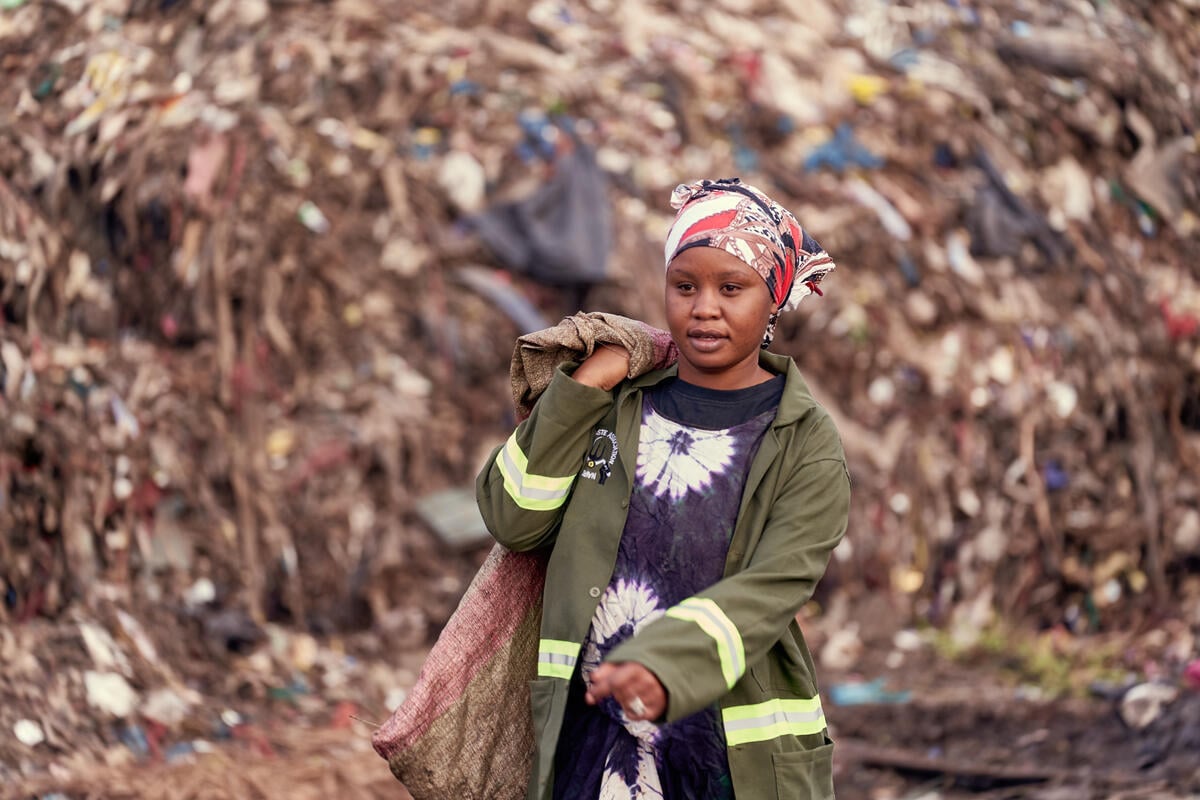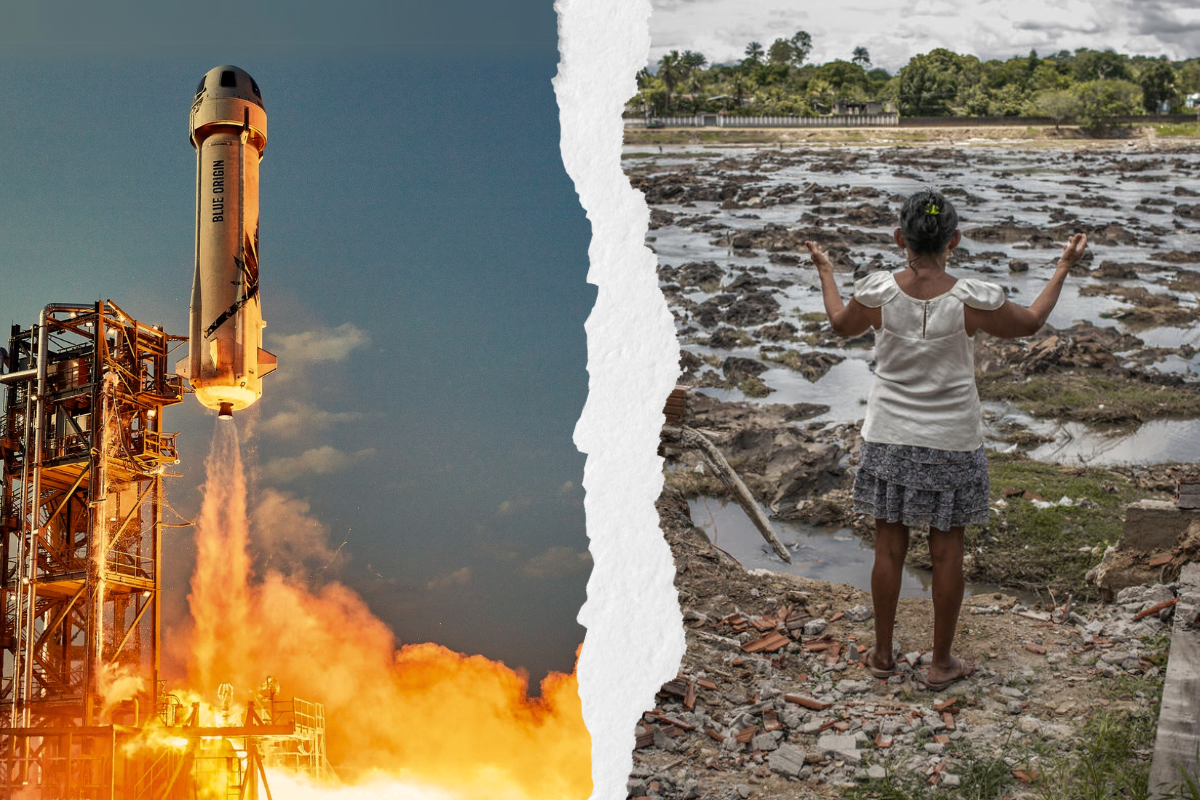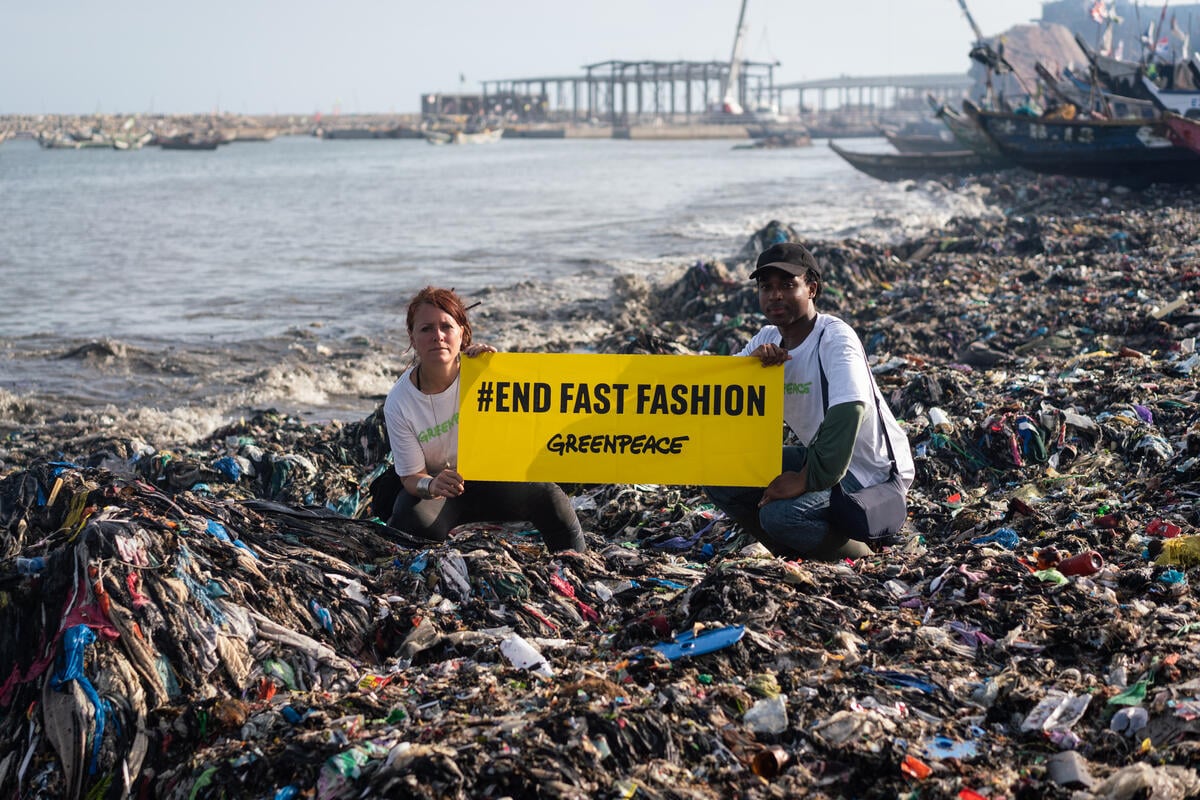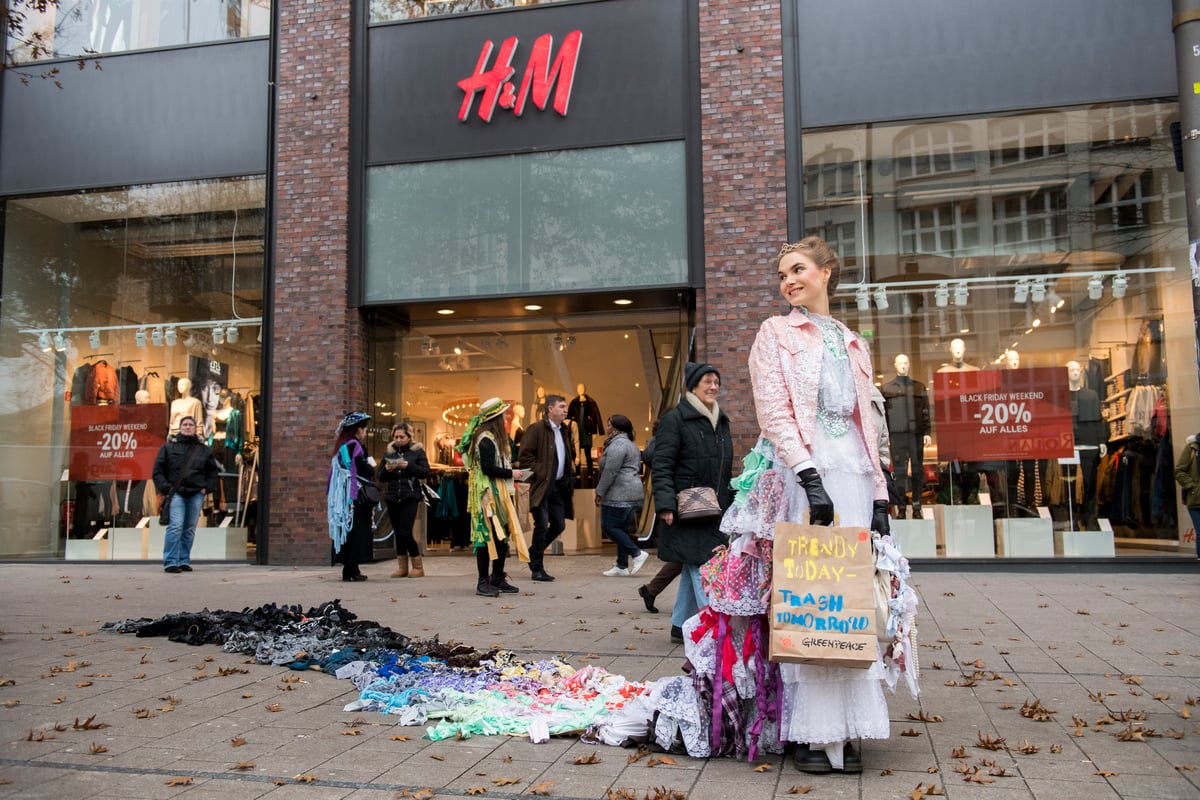
A “Trash Queen” wears a 7 metre long train made from used clothing © Bente Stachowske / Greenpeace
Five years ago this week, 1,138 young women and men working in a textile factory in Bangladesh lost their lives when the building – which had notable signs of danger and deterioration – collapsed.
The people working in Rana Plaza, were producing garments for many well known brands like Mango, Primark and Walmart, and the tragedy sent shockwaves around the world. Not just because of the lives lost, but because it showed the result of the unsafe and unhealthy working conditions our cheap fast fashion is often made in. This was too high of a price to pay for cheap fashion, and so a global movement called “Fashion Revolution” was founded in protest.
Now in its fifth year, Fashion Revolution Week will be bigger and bolder than ever. From today until Sunday April 29, it will bring activists in 100 countries that are demanding a more sustainable, safer, cleaner and more transparent fashion industry.
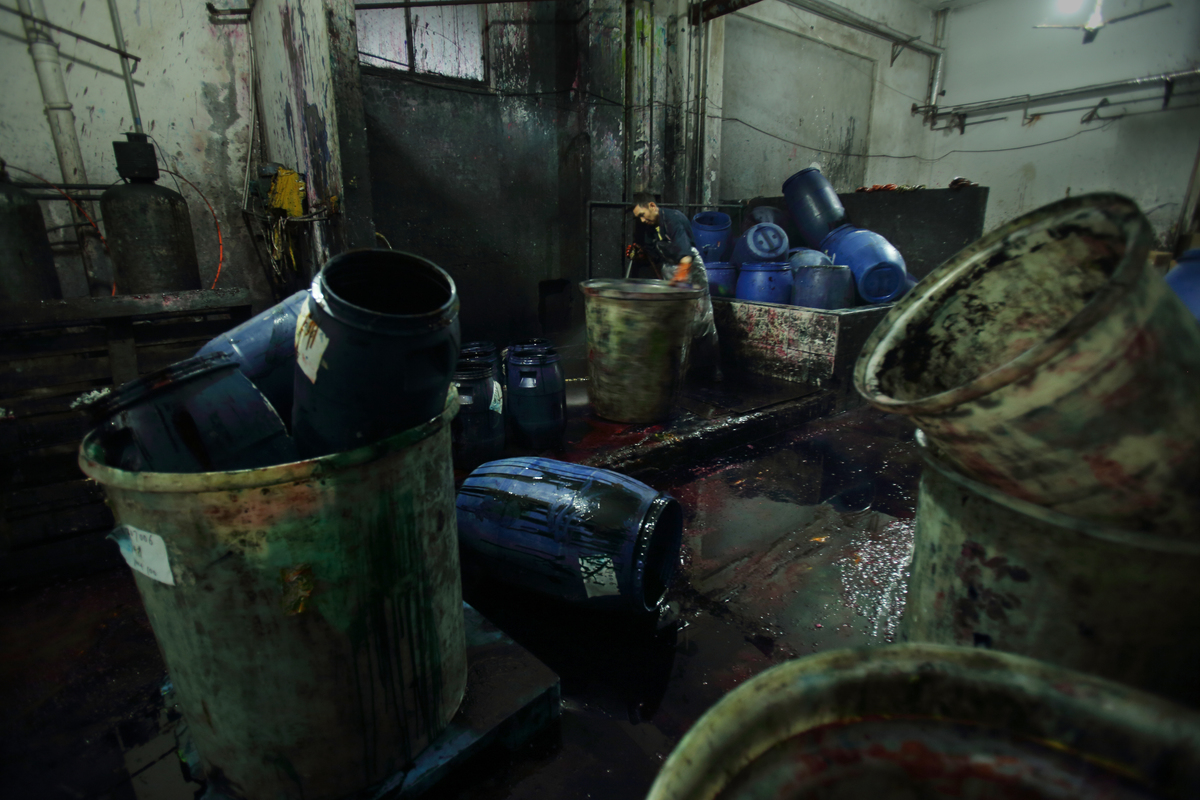
A worker inside a dye factory located in Zhejiang Province, China. Fabrics need to be washed after each dyeing process approximately 4 times a day © Lu Guang / Greenpeace
At Greenpeace, we know what people power can achieve. Since 2011, our supporters have helped make the Detox my Fashion campaign incredibly strong, by calling for a cleaner and healthier fashion industry and asking fashion brands to detox from hazardous chemicals in their supply chain. Thanks to your tireless, unwavering action, 15% of the global textile sector have committed to becoming better.
As a result of people power from all over the world, many brands have started to disclose information about their production, from working conditions and wages, to their environmental policies, but it’s still not enough. The Fashion Revolution’s Transparency Index ranks 150 fashion brands based on their transparency, and this clearly shows that we need to ask way more uncomfortable questions to build the pressure on brands.
Transparency is key if we want to demand change. We need to ask brands to come clean about wages, workplace safety, environmental policy, the use of polyester and textile recycling; and demand for high quality, durable clothes from brands instead of cheap throw-away fashion.
The fashion industry is a huge employer for millions of young women around the world who are often forced to work too long hours for too little dollars. The overall volume of clothes being produced is putting a strain on the environment, polluting water and oceans with microfibres that shed from polyester clothing, and using up precious drinking water in production countries. It’s up to us to make a change by using our voice and creativity.
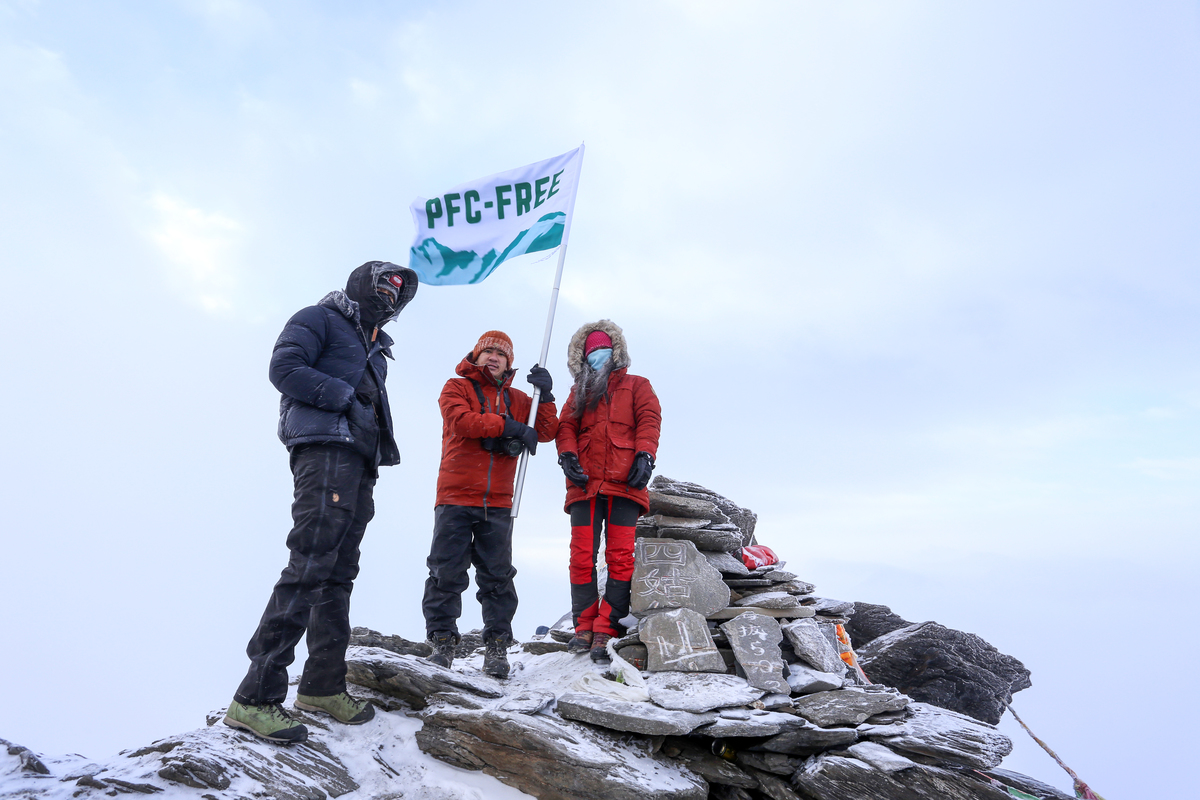
3 climbers reach the peak of the Four Sisters Mountain in Sichuan, Mainland China, and do it in PFC-free clothes. PFC (per- and poly-fluorinated chemicals) is a hazardous chemical that is used to make outdoor gear waterproof © Vincent Chan / Greenpeace
Here’s what you can do:
1. Ask brands #whomademyclothes
Take a picture of your clothing label, share it on Instagram with #whomademyclothes and if the brand should reply, tag @fash_rev.
2. Instead of shopping new, take the “haul-ternative” and MAKE SMTHNG
To reduce fashion’s impact on the environment, be aware that anything you buy new uses lots of water, chemicals and labour. So this week, test one of many great ways to take fashion into your hands and save important resources while still looking stylish:
- Lengthen the lifespan of your favourite clothes by upcycling, repairing, mending or pimping them out. Get inspired with Fashion Revolution’s Haulternative toolkit or on the @makesmthng Instagram channel.
- Share and swap your clothes with friends or join a public clothes swapping party
- Visit a flea market or second hand store to find a pre-loved item of clothing.
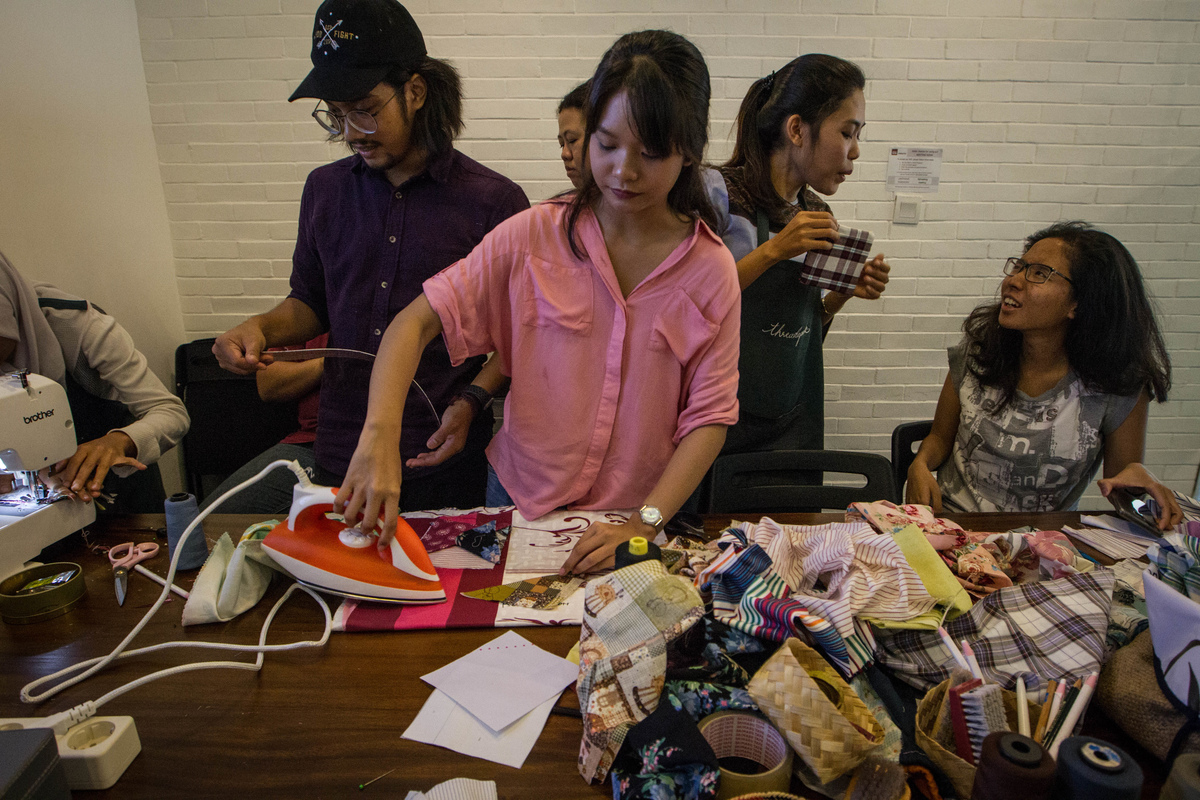
Participants make a bag from used textiles during an upcycle workshop as part of the MAKE SMTHNG movement in Jakarta © Afriadi Hikmal / Greenpeace
3. Go to a fashion revolution event near you and connect with your local community
During Fashion Revolution Week, there are loads of discussions, clothes swapping parties, repair events, movie screenings and a million more things going on. Joining an event is a great way to connect with likeminded, active people in your community.
4. Be curious
Get informed by watching the movie “True Cost” or checking out Youtube videos on fast fashion. Read our report and our factsheet on microfibres, or if you are in the fashion industry follow the steps in our Fashion at the Crossroads report.
5. Send a postcard to brands & politicians
Write to a fashion brand to ask them to be more transparent and to commit to paying living wages or write to your local politician and tell them you want better conditions for workers and the reduction of environmental impacts in the fashion industry everywhere in the world.
Lu Yen Roloff is the Communications Lead for Detox My Fashion, Greenpeace
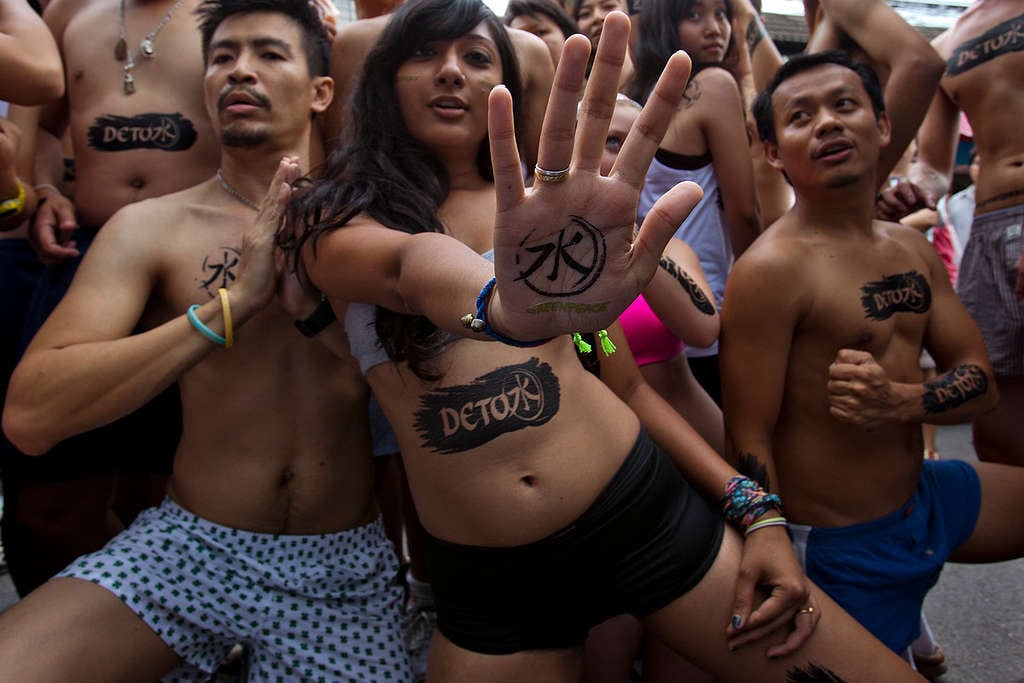
Global fast fashion brands are churning out more clothes than the planet can handle.
Take action
